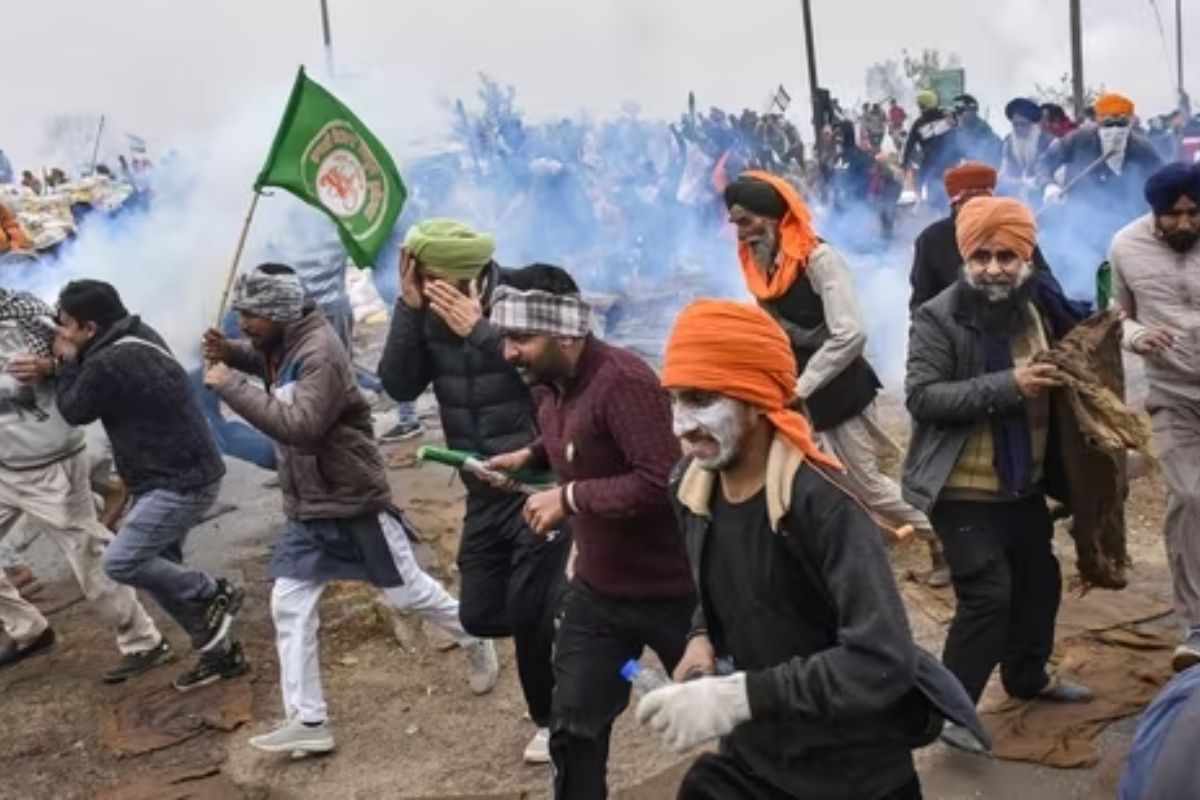NEW DELHI: The Centre has urged protesting farmers to engage in the fifth round of talks, expressing readiness to address key issues such as MSP, stubble burning, and FIR withdrawals. Union Agriculture Minister Arjun Munda emphasised the importance of this dialogue in resolving disputes peacefully.
“In the 5th round of meetings, we are ready to talk with farmers and discuss issues like MSP, stubble, FIR, and crop diversification. I appeal to them to maintain peace and we should find a solution through dialogue,” Munda said on Wednesday.
Despite the government’s call for talks, there has been no response from the farmers’ side yet.
“No information has come yet (from the farmers’ side). We appeal that we should move forward for talks and present our stand. The government also wants to move forward and find a solution,” he said.
In the ongoing protests, farmers demanding MSP support for all crops resumed their Delhi Chalo march, facing resistance from Haryana police who fired tear gas shells. The police warned against the use of heavy machinery during protests.
#FarmersProtestInDelhi : Big Breaking News
According to Top Sources:
The Delhi Police possess 10,000 tear gas canisters, while the RAF/CRPF has 20,000 tear gas canisters. Additionally, there are 10 tire-killing machines and 10 cutter machines in their arsenal. Furthermore, at…
— The New Indian (@TheNewIndian_in) February 21, 2024
Responding to concerns raised by the Haryana government regarding the use of heavy machinery like JCBs, Poclaines, Tippers, Hydras, by farmers at the Shambhu border, Punjab’s DGP directed officials to halt the movement of such machinery to the Punjab-Haryana borders.
In Muzaffarnagar, a large group of farmers staged a dharna at the collectorate, with BKU president Naresh Tikait and Rakesh Tikait expected to join a tractor march.
Similar protests occurred in Shamli, Bagpat, Meerut, Hapur, Sambhal, Amroha, and Saharanpur, indicating widespread agitation among farmers.
At the Shambhu border crossing, farmer groups have assembled in a human chain, presenting a stark scene with heavy earth-moving machines like JCBs and tractors facing off against security forces, including paramilitary personnel equipped with riot gear.
FLASH : Farmers are ready with kites to take down police drones at Sambhu Border.
Reports : @iAtulkrishan1#farmersprotests2024 #FarmersProtest pic.twitter.com/T9jepJPZHX
— The New Indian (@TheNewIndian_in) February 21, 2024
On Monday evening, farmer leaders dismissed the government’s offer to purchase maize, cotton, and three types of pulses— toor, urad, and masoor— at the previous Minimum Support Price (MSP). They argued that this offer only covered a handful of crops, neglecting the remaining 18.
Critiquing the proposed price based on the A2+FL+50 percent formula (MSP at 1.5 times direct costs, excluding factors like land rent), farmers expressed dissatisfaction, deeming it as “subsistence” rather than “income,” as per the recommendations of the Swaminathan Commission’s C2+50 percent formula, which considers broader cost factors like land rental value.

